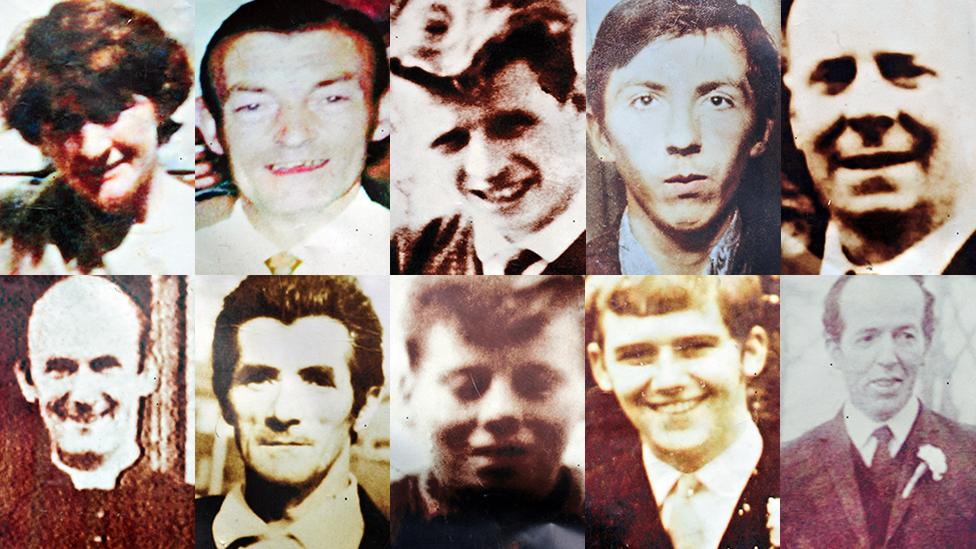Ballymurphy inquest: commander praised priest in letter
- Published
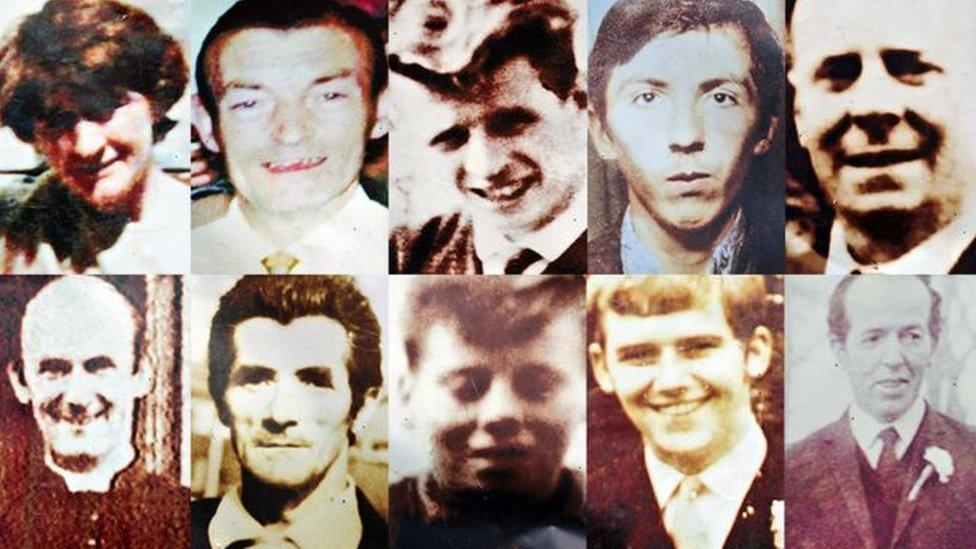
The inquest is examining the deaths of 10 people in Ballymurphy in 1971
It has emerged that a senior commander in the Parachute Regiment wrote a letter praising the priest who was shot dead in Ballymurphy in 1971.
Thirty-eight-year-old Father Hugh Mullan was shot and killed in Springfield Park on 9 August 1971.
He was giving the last rites to a man who had already been shot and wounded at the time, the Ballymurphy inquest has heard.
Nineteen-year-old Frank Quinn was shot and killed alongside him.
The inquest is examining the deaths of 10 people in Ballymurphy in August that year.
It is known that British soldiers, including members of Support Company of the 2nd Battalion, the Parachute Regiment, fired many shots at the patch of waste ground in which the men died.
The letter from Lieutenant Colonel Peter Chiswell, the officer commanding the 3rd Battalion, the Parachute Regiment, was sent to Bishop William Philbin 10 days after Father Mullan's death.
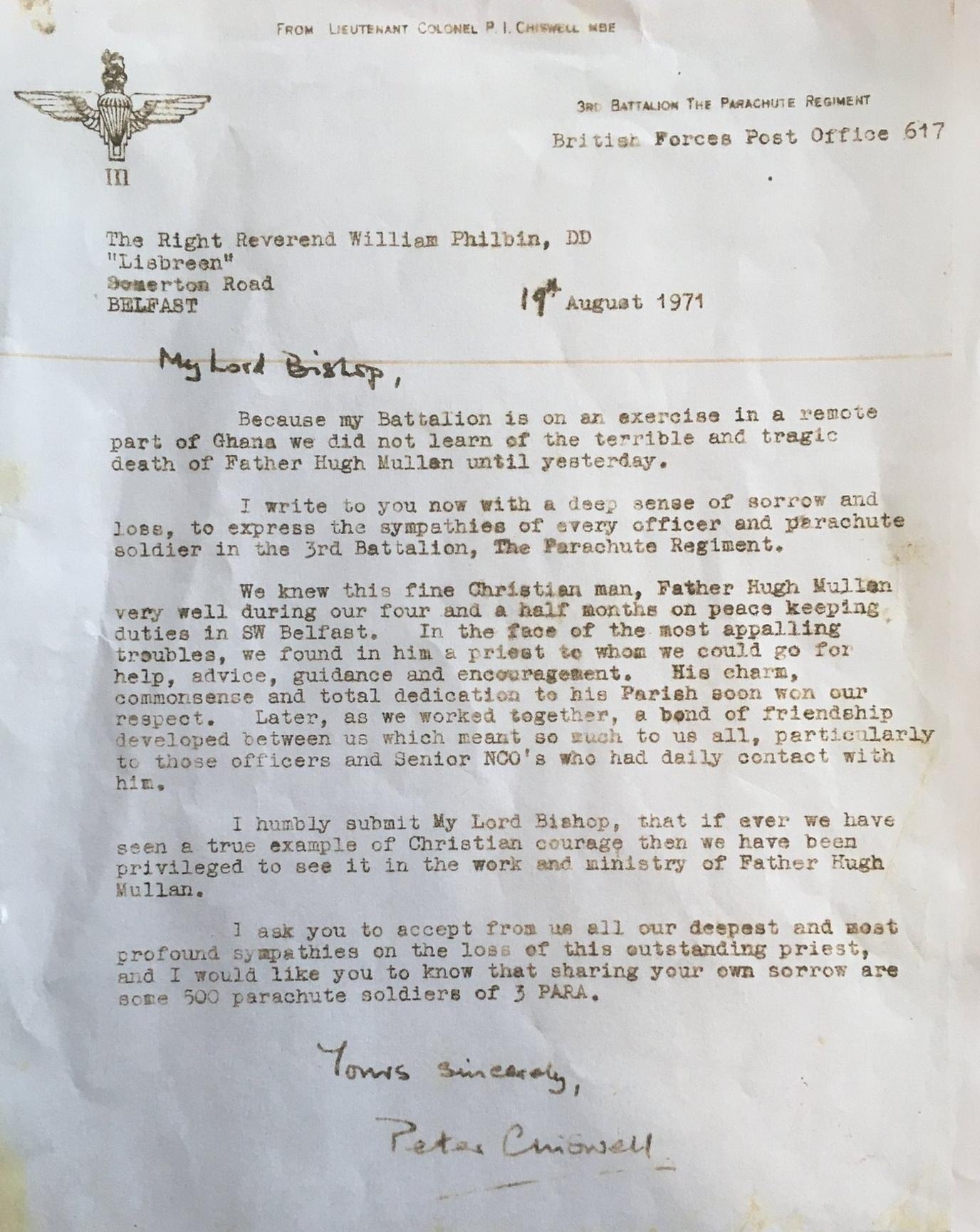
The Parachute Regiment wrote a letter praising the priest
Three Para was abroad on exercise during the shootings, but had been in the Ballymurphy area for more than four months, before 2 Para replaced them.
The letter, which was read out in court, has been obtained by BBC News NI.
It has been kept by the Mullan family for 48 years, and has been reproduced with their permission.
In it, Lt Col Chiswell expressed "the sympathies of every officer and parachute soldier in the 3rd battalion, the Parachute Regiment".
He goes on to explain that they had got to know Father Mullan as "a fine Christian man" and also as "a priest to whom we could go for help, advice, guidance and encouragement".
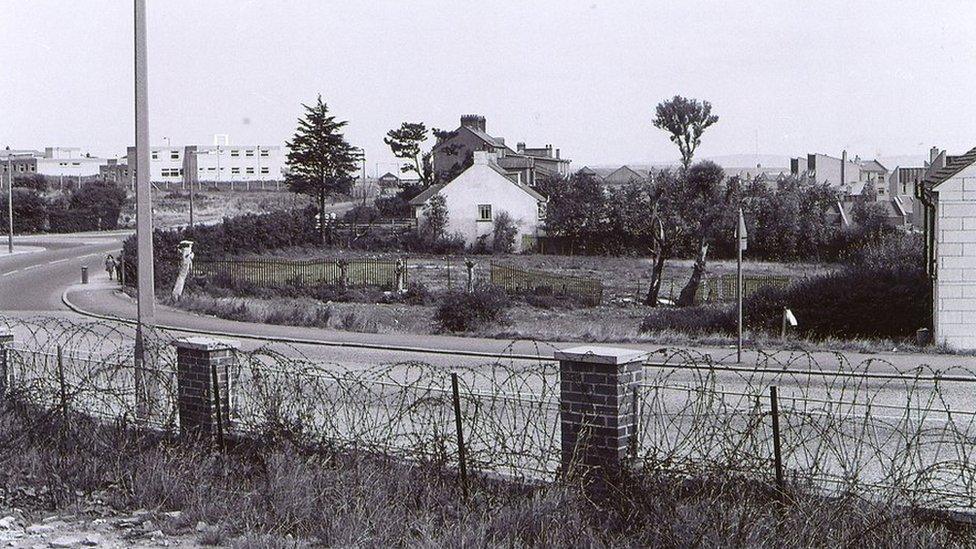
Four of the Ballymurphy victims died as a result of shooting in the Manse field
He said Father Mullan "won our respect" and spoke of "a bond of friendship" between them.
Lt Col Chiswell finished the letter by saying to Bishop Philbin: "I would like you to know that sharing your own sorrow are some 500 soldiers of 3 Para."
Breakdown of Command
Later the court heard a claim that 2 Para soldiers in the Henry Taggart army base had been part of a "breakdown of command".
Four people were fatally shot on waste ground opposite the base on 9 August 1971 - Joan Connolly, Noel Phillips, Joseph Murphy and Daniel Teggart.
The unusual evidence came from Anthony McEvoy, whose father Frank McEvoy had been an NCO in catering, attached to 2 Para at the base.
Frank McEvoy is now deceased, but his son wrote to the inquest explaining his father's many reminiscences about the Ballymurphy shootings during his life.
The Coroner decided to admit the information as evidence, adding she would have to decide what weight to give it in her findings, because it was not first hand.
Frank McEvoy had described ducking underneath windows in the Henry Taggart Hall as the base came under fire.
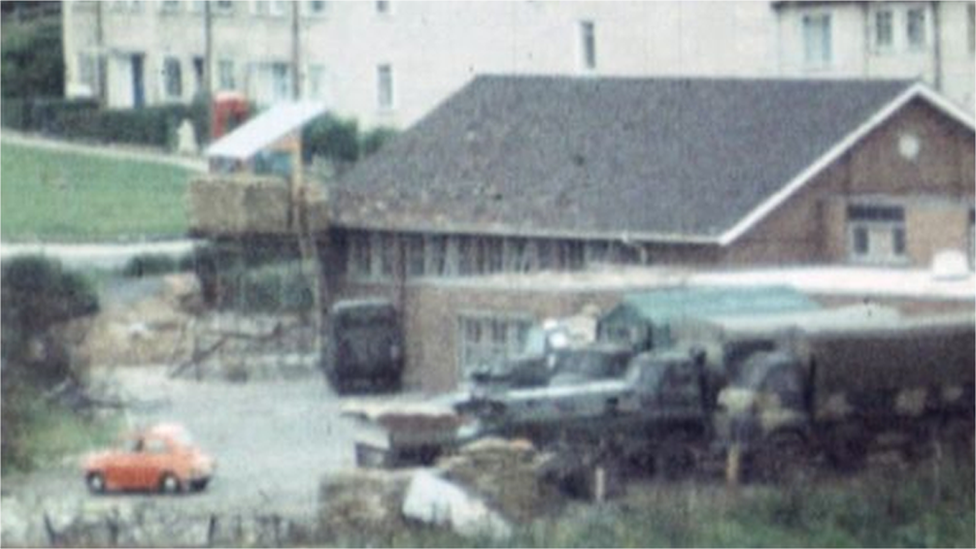
Soldiers from the Parachute Regiment were based at Henry Taggart Army base in west Belfast
He said soldiers climbed onto anything they could find to reach the high windows and return fire.
He told his son the men had fired in "a spontaneous and indiscriminate way".
He added that the soldiers seemed to be "hyped up" and that commands for them to stop firing were ignored.
Mr McEvoy Snr said he felt that there had been a "temporary but complete breakdown of command in the hall".
He added that he felt those who had been shot were "innocent civilians".
'Last wish'
Later in life he told his son he had difficulty sleeping because he could still hear the cries of civilian casualties being tortured in the hall.
Frank McEvoy described trying to care for one man with multiple gunshot wounds who had been placed on his own camp bed.
His son described his frustration that ambulances could not get through to take the man to hospital.
When he realised the man was dying, as a Catholic himself, he tried to find a way for the man to be given the last rites, but was told that was not possible.
His son Anthony's letter to the court said Frank McEvoy's last wish was that the dying man could be identified, and that his family could at least be reassured that in his last moments he knew some kindness and compassion.
The inquest continues next week.
- Published11 May 2021
